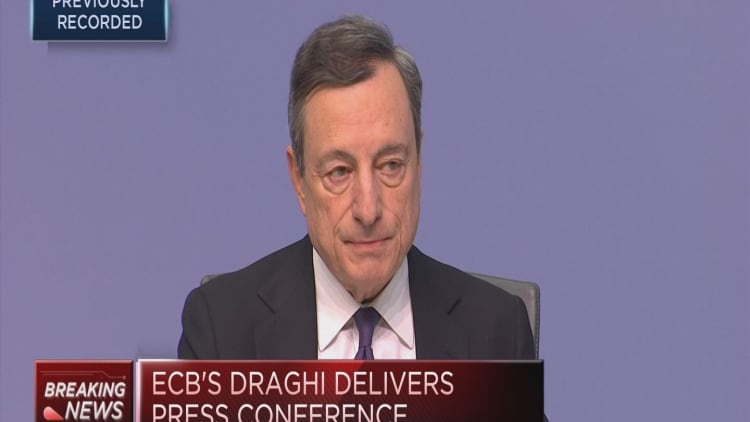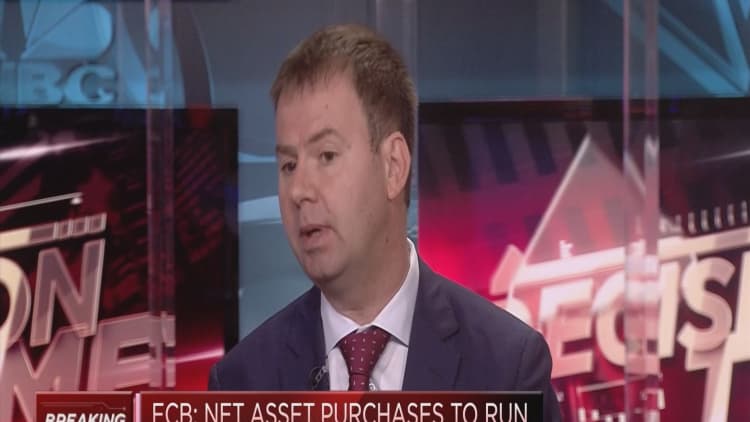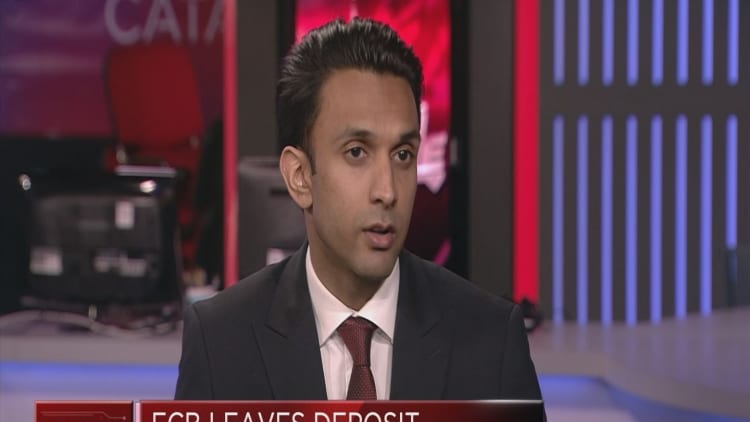
The European Central Bank (ECB) held interest rates steady on Thursday, amid signs the euro area's growth outlook may have softened.
The ECB's interest rate on its main refinancing operations and the interest rates on the marginal lending facility and the deposit facility will remain unchanged at zero, 0.25 and -0.40 percent respectively.
Speaking from Frankfurt, ECB President Mario Draghi said "underlying strength" in the euro zone's economy continued to underpin the bank's confidence despite signs of "moderation" in recent weeks.
He added an "ample degree of monetary stimulus" remained necessary over the coming months.
The ECB president was widely expected to tread carefully and try to avoid offering any explicit clues about when the bank would end its stimulus program, under which it purchases 30 billion euros ($37 billion) of bonds per month. Instead, analysts said the ECB is likely to delay a final decision over its stimulus settings until the summer.

"The Governing Council expects the key ECB interest rates to remain at their present levels for an extended period of time, and well past the horizon of net asset purchases," the ECB said in a statement, repeating its long-standing guidance on interest rates.
The timing of when the ECB will end its stimulus program is crucial because it gives investors a major clue about when the central bank could then look to raise interest rate benchmarks.
Trade war
Last year was the strongest in a decade for economic growth in the euro zone, but a recent slump in investor sentiment since the start of 2018 could threaten the ECB's inflation outlook.
Business confidence in the 19-country bloc has already taken a knock, most notably in export-focused Germany. Europe's largest economy saw business sentiment drop to its lowest level in almost a year in April, while sentiment in Italy and France also deteriorated.
Meanwhile, the prospect of a full-scale trade war could also quickly hurt growth in the region — a potential risk highlighted by policymakers at Europe's central bank last month.

A major concern for the ECB is that nationalist rhetoric from the U.S. could decrease the value of the dollar, despite the Federal Reserve gearing up to raise interest rates several times in 2018. This, in turn, could have ramifications for the ECB's sole policy objective of ensuring price growth returns to its near 2 percent target.
Draghi said risks "related to global factors, including the threat of protectionism, have become more prominent."
A stronger single currency would also most likely cap already weak inflation in the euro zone — a persistent headache for the ECB.
Nonetheless, the euro's recent strength has had a relatively limited impact in recent weeks. It is up around 1.5 percent against the U.S. dollar so far this year and was trading at $1.2180 shortly after 1:45 p.m. London time.


